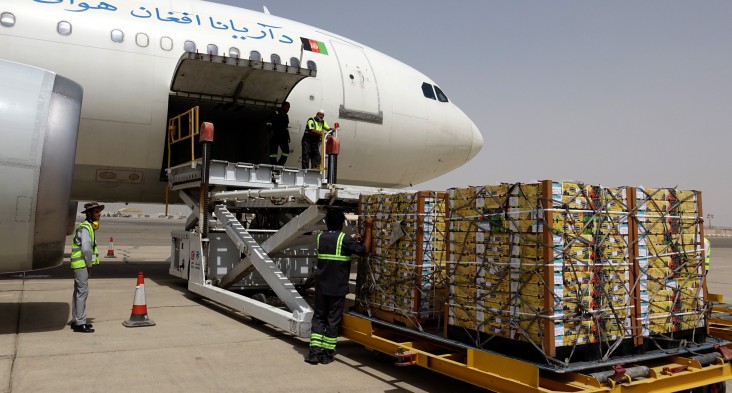Speeches Shim

Afghanistan’s agricultural sector produces fresh and dried fruits and nuts of the highest quality and pomegranates that are widely considered some of the best in the world. Marketing and shipping Afghanistan’s agricultural bounty abroad, however, remains a huge challenge for many Afghan farmers and traders.
The Regional Agricultural Development Program-South (RADP-South) addresses policy and legal constraints to a growing licit agricultural economy in Afghanistan by supporting farmers’ and agribusinesses to improve production, processing, and commodity sales and this includes facilitating exports.
A significant success was achieved recently when the program’s efforts caught the interest of several influential traders whose efforts to export their products by air were foiled by changes in Indian health regulations regarding dried figs which the traders by surprise.
In the Fall of 2016, a large Kandahar-based export enterprise sought to sell five tons of figs to India through a commission agent. The shipment was sent from Kandahar by air to New Delhi as the shipment’s final destination. However, the well-intentioned Afghan trader failed to certify that his figs were properly fumigated before they were exported. Fumigation is a strict Indian government import requirement to protect the country from invasive pests. Because the fruit was unfumigated, the Afghan trader’s figs were left to rot at the customs warehouse.
This refusal by the Indian customs to clear the figs was widely discussed among the traders in Kandahar. Shortly after the rejection of the figs, another trader who intended to export dry fruits had been told that none of the shipments facilitated by RADP-S had ever been rejected in India. This reference by a fellow trader to promote what he learned about exporting from RADP-S demonstrated a high level of trust and confidence in RADP-S’s efforts to support exporters.
RADP-S has already facilitated shipments of 45 tons of goods from Kandahar to New Delhi. The program called upon the assistance of a certified Indian Food Safety Standards Authority importer to provide information and advice to local exporters to increase their knowledge related to fumigation and other export regulations.
This new level of engagement with local traders demonstrates a great stride from previously reticent attitude they have shown towards foreign assistance. It represents a significant development for the program and increases the likelihood of further collaboration of RADP-S with its key beneficiaries.

Comment
Make a general inquiry or suggest an improvement.